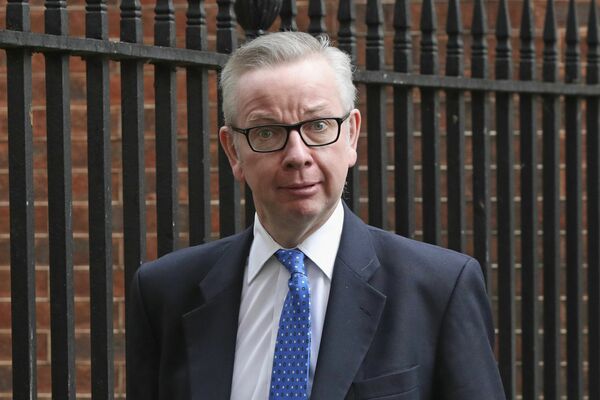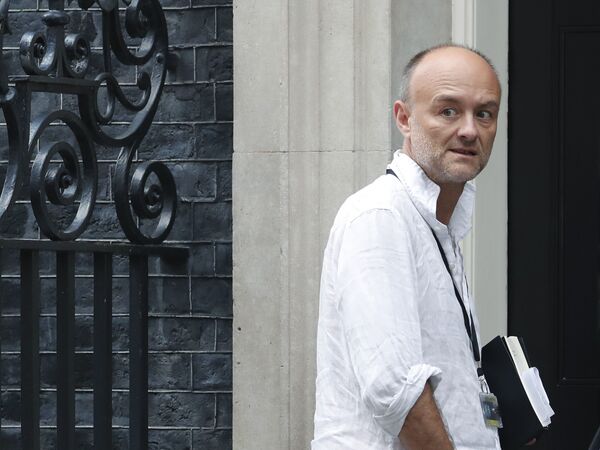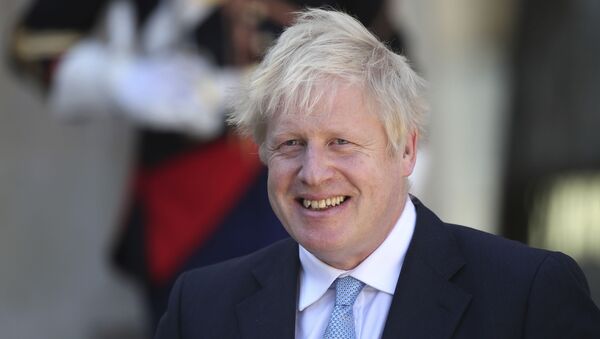UK Prime Minister Boris Johnson, who is currently on holiday, has been busy drafting a “to do” list as he faces impending post-Brexit talks in Brussels in 2020.
Top of this list is the establishment of a new Downing Street unit to spearhead negotiations with the EU as Johnson prepares to deliver Brexit next month and, as promised, a trade deal with the EU by December, writes the Daily Mail.
Taskforce Europe
The new taskforce, which will be headed by the PM's chief Brexit negotiator David Frost, is intended to be operational by Brexit Day on 31 January.
A government source is quoted by the publication as saying Frost's unit, which will be based in No. 10, would be focused on reaching Johnson's end-of-year deadline.
“In 2020, we will move forward to establish a future relationship and free trade agreement with the EU", the source said.
“Following the Election, the Government has a clear and renewed mandate to achieve this. We want our new relationship to be based on an ambitious free trade agreement and a close friendship between sovereign equals".
This comes as new EU Commission President Ursula von der Leyen questioned Johnson's pledge of delivering a trade deal with the EU by December next year.
Von der Leyen was quoted as saying this weekend that she was “very worried” by Boris Johnson's timeframe for trade talks. She also suggested that the Brexit “transition” period, during which Britain would remain inside the EU single market and customs union, could be extended until 2023.
“We should seriously ask ourselves if all these negotiations are possible in such a short time...I think it would be reasonable to take stock mid-year and, if necessary, agree on an extension", said the EU Chief.
Government sources, however, have been quoted as putting the EU Commission president’s comments down to “tactics and bluster”, suggesting that any “genuinely held concerns about timing” should have been made known by Brussels when Johnson forged his new Brussels deal in the autumn.
‘Cabinet Cull’
The publication reports that ministers fear Boris Johnson could sack up to a third of his Cabinet in a post-Brexit “St Valentine's Day Massacre” reshuffle.
Tipped as likely to be out the door are Attorney General Geoffrey Cox and Business Secretary Andrea Leadsom.
On the other hand, Chief Secretary to the Treasury Rishi Sunak and Security Minister Brandon Lewis are likely to join Michael Gove – touted as being given overall charge of global trade talks - on the promotion list.

In a reorganisation of Whitehall departments, earlier, plans to remove control of prisons, probation and sentencing from the Justice Department, handing it instead to Home Secretary Priti Patel were reported. Chief Special Adviser to Prime Minister Boris Johnson Dominic Cummings was suggested as the mastermind behind the reorganisation.
In another impending move, immigration would be removed from under Home Office control and placed in a stand-alone department.
Budget
Another outstanding issue on Johnson’s “to do” list is the budget.
His adviser Dominic Cummings is said to be studying plans to redefine what Britain's £14 billion foreign aid budget can be spent on, according to the Daily Mail.

Under the country’s legally binding commitment to devote 0.7 percent of the nation's GDP to international charity, that spending is currently bound by strict Overseas Development Aid definitions.
However, a “new British standard of aid spending” is said to be under consideration. This could see the budget shared more widely across Whitehall, including with the Ministry of Defence, with some aid spending counting towards Britain's NATO commitment to devote two percent of GDP to defence.
“It's our money and it is up to us how we spend it", the paper cites a cabinet source as saying.
International aid and the role of DFID (the Department for International Development) are set to be key parts of a review into Britain's standing in the world led by Professor John Bew.
Regarding March's Budget, treasury insiders are quoted as warning that a slew of Tory election pledges will have to be funded by tax changes.
While the Conservative Party manifesto prohibits rises in income tax, National Insurance and VAT, it is understood a hike in Capital Gains Tax has been mulled by Treasury officials. Currently, the tax on the profit from the sale of second properties is set at 28 percent, with tax on the profit on the sale of other capital assets set at 20 percent.
Entrepreneurs' Relief – which sees business creators pay only ten percent tax when they sell their business – could be scrapped, according to sources.
A treasury official, however, was cited as dismissing the claims as speculation, adding no final decision on the budget had been made.


